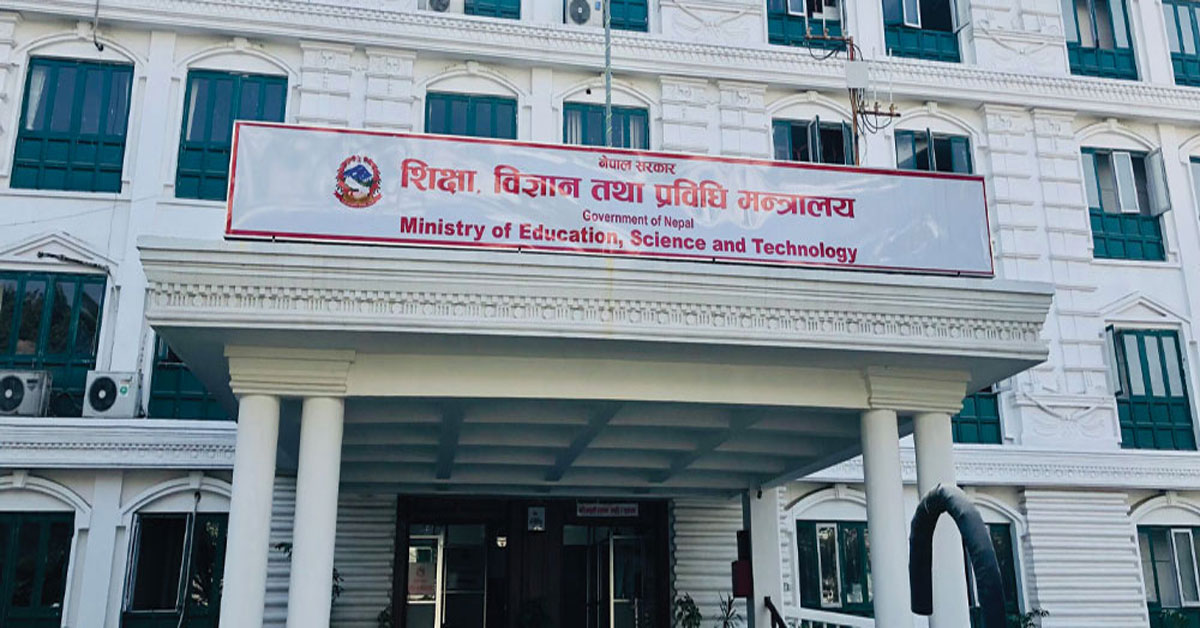
Regulation of Foreign Educational Programs in Nepal
The Ministry of Education, Science, and Technology has received recommendations from a committee that regulates institutions operating foreign university programs in Nepal. The committee, led by Tribhuvan University's Prof. Dr. Vinil Aryal, submitted a report highlighting the lack of legal frameworks to monitor and control these institutions. It also pointed out weaknesses in their management and operational systems due to the absence of specific laws.
Foreign educational programs in Nepal have been operating for over two decades, with more than 100 institutions authorized by the Ministry of Education. However, only around 90 of these institutions are currently active. These institutions are currently managed under a directive issued in 2059 BS, as there is no other specific legislation to regulate them.
Nepal’s Education Act, originally drafted in 2028 BS, focuses solely on school education and has undergone multiple amendments. While separate laws exist for universities, no dedicated act regulates institutions offering foreign educational programs. As a result, these institutions continue to operate under the 2059 directive.
The committee’s report recommends drafting a new law for foreign educational programs. It suggests:
-
Setting quotas for student enrollment in these institutions.
-
Allowing institutions to admit students only once or twice a year.
-
Institutions must publish the details of enrolled students, scholarships provided, and scholarship recipients on their websites.
The committee also emphasized that 10% of all students should be granted full scholarships, and transparency should be ensured by publishing the scholarship details online.
According to Laxman KC, President of the International Education Providers Association of Nepal (IEPAN), most institutions follow quotas their affiliated foreign universities set. He also noted that while the state attempts to modify directives or create new laws with each new education minister, these efforts often fail to address practical challenges.
Education Minister Vidya Bhattarai stated that the ministry is working to organize and regulate these institutions based on expert recommendations. Discussions on the type of legal framework to be implemented will be held soon. Although the committee recommended enacting a new law, the ministry plans to form another committee to amend the existing directive.
Key Takeaway:
-
Nepal lacks specific laws to monitor and regulate institutions offering foreign university programs.
-
Weak management systems have resulted due to the absence of dedicated legislation.
-
Foreign educational programs have been operating in Nepal for over 20 years, with over 100 institutions authorized and around 90 active.
-
These institutions are managed under a directive issued in 2059 BS, with no other legal framework in place.
-
Despite multiple amendments, the Education Act 2028 BS focused on school education and does not cover foreign educational programs.
-
A committee led by Prof. Dr. Vinil Aryal has recommended drafting a new law to regulate these institutions.
-
The report suggests setting student quotas and limiting admissions to once or twice yearly.
-
Institutions should ensure transparency by publishing details of enrolled students, scholarships provided, and recipients on their websites.
-
At least 10% of enrolled students should receive full scholarships, with transparency maintained through online disclosure.
-
The Ministry of Education plans to amend the 2059 directive instead of drafting a new law, forming another committee for this purpose.





